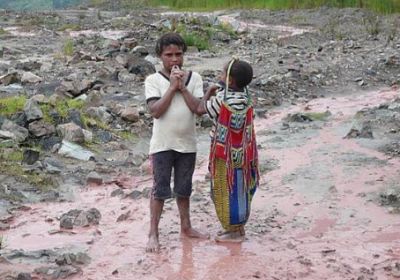
-
 The fight against the dumping of toxic waste off the coast of Madang in Papua New Guinea suffered a setback when a court injunction against the Ramu nickel mine, which is building a pipe to dump its waste into the ocean, was reversed. The injunction was dropped after the three remaining plaintiffs pulled out of the case against the US$1.4 billion Chinese-owned mine, the September 24 Sydney Morning Herald said.
The fight against the dumping of toxic waste off the coast of Madang in Papua New Guinea suffered a setback when a court injunction against the Ramu nickel mine, which is building a pipe to dump its waste into the ocean, was reversed. The injunction was dropped after the three remaining plaintiffs pulled out of the case against the US$1.4 billion Chinese-owned mine, the September 24 Sydney Morning Herald said. -
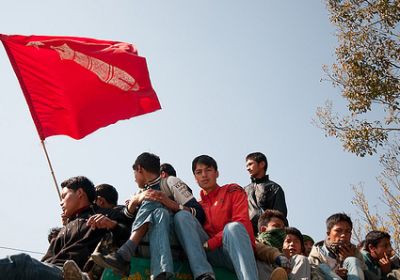 The 2006 Jana Andolan (“People’s Movement”), which shut down Nepal and overthrew the 240-year-old Shah monarchy, was widely hailed as the birth of a new era of democracy. For the first time, the people of Nepal were able to elect a constituent assembly in 2008, giving the mass of Nepalis an unprecedented say in the future of their country.
The 2006 Jana Andolan (“People’s Movement”), which shut down Nepal and overthrew the 240-year-old Shah monarchy, was widely hailed as the birth of a new era of democracy. For the first time, the people of Nepal were able to elect a constituent assembly in 2008, giving the mass of Nepalis an unprecedented say in the future of their country. -
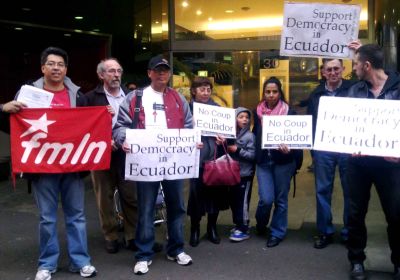 On September 30, Ecuador descended into chaos as a protest by sections of the police force and army turned into a potentially bloody coup against left-wing President Rafael Correa. At about 8am, sections of the Ecuadorian Armed Forces and the national police went on strike, occupying police stations and barracks in the capital Quito, in Guayaquil and in at least four other cities. They set up road blocks with burning tyres, cutting off access to the capital.
On September 30, Ecuador descended into chaos as a protest by sections of the police force and army turned into a potentially bloody coup against left-wing President Rafael Correa. At about 8am, sections of the Ecuadorian Armed Forces and the national police went on strike, occupying police stations and barracks in the capital Quito, in Guayaquil and in at least four other cities. They set up road blocks with burning tyres, cutting off access to the capital. -
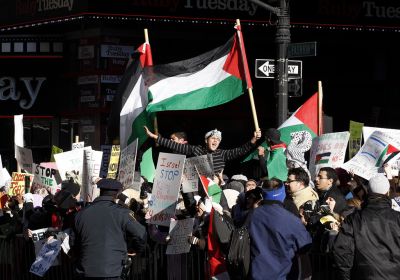 Palestinian activists in the occupied West Bank have called for the boycott of the popular Rami Levy Israeli supermarket chain. The chain has several stores inside Israel’s illegal settlements. Activists say they will call on fellow Palestinians to “avoid supporting the occupation and settlements’ economy by boycotting Israeli goods and settlement stores”. A vigil was held on September 23 outside the Rami Levy store inside the Sha’ar Binyamin settlement south of Bethlehem.
Palestinian activists in the occupied West Bank have called for the boycott of the popular Rami Levy Israeli supermarket chain. The chain has several stores inside Israel’s illegal settlements. Activists say they will call on fellow Palestinians to “avoid supporting the occupation and settlements’ economy by boycotting Israeli goods and settlement stores”. A vigil was held on September 23 outside the Rami Levy store inside the Sha’ar Binyamin settlement south of Bethlehem. -
 Pakistan blocked a vital supply route for US-led troops in Afghanistan on September 30. The move was in apparent retaliation for an alleged cross-border NATO helicopter strike that killed three Pakistani frontier troops, The British Morning Star said that day. The blockade appeared to be a big escalation in tensions between Pakistan and the United States. A permanent stoppage of supply lorries would place huge strains on NATO and damage the already faltering counter-insurgency campaign in Afghanistan.
Pakistan blocked a vital supply route for US-led troops in Afghanistan on September 30. The move was in apparent retaliation for an alleged cross-border NATO helicopter strike that killed three Pakistani frontier troops, The British Morning Star said that day. The blockade appeared to be a big escalation in tensions between Pakistan and the United States. A permanent stoppage of supply lorries would place huge strains on NATO and damage the already faltering counter-insurgency campaign in Afghanistan. -
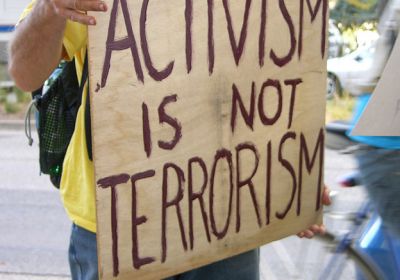
In a qualitative escalation, the government of President Barack Obama has for the first time used the “war on terror” against socialists in the United States. On September 24, the FBI conducted a series of coordinated early-morning raids at homes and offices in Minneapolis, Chicago, Michigan and North Carolina. The political police seized computers, passports, books, documents, cell phones, photos, financial records, diaries, maps and other materials. In one case, children’s artwork was confiscated.
-
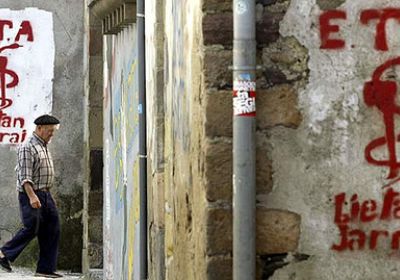
On September 5, the Basque armed group Euskadi Ta Askatasuna (Basque Homeland and Freedom, ETA), which has fought an armed struggle for Basque freedom for decades, released a video declaring that several months ago it had decided to stop armed actions, and announced a ceasefire.
-
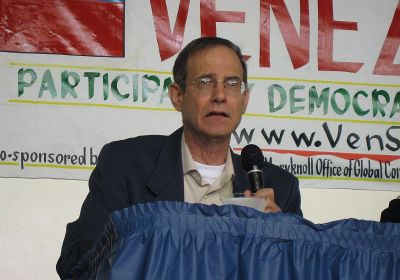 On September 28, a British Guardian reporter who interviewed me by phone published an article on the September 26 Venezuelan National Assembly elections titled “Opposition Gains Loosen Chavez’s Grip on Power.” According to the article, I said the electoral results “suggested the government should try to modify its radical discourse and accommodate the opposition, as long as it accepted the government’s legitimacy”.
On September 28, a British Guardian reporter who interviewed me by phone published an article on the September 26 Venezuelan National Assembly elections titled “Opposition Gains Loosen Chavez’s Grip on Power.” According to the article, I said the electoral results “suggested the government should try to modify its radical discourse and accommodate the opposition, as long as it accepted the government’s legitimacy”. -
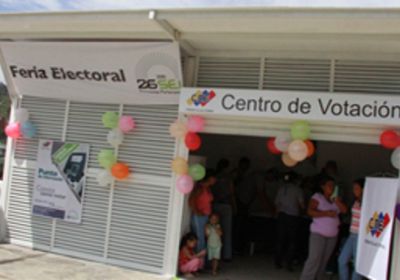 Venezuela’s September 26 National Assembly elections gave an interesting insight into the state of class struggle in a country sharply polarised by the revolutionary changes led by the government of President Hugo Chavez. The significance lies in the vote occurring after 11 years of the Chavez-led Bolivarian revolution, which has resulted in big improvements in the living standards of the poor majority.
Venezuela’s September 26 National Assembly elections gave an interesting insight into the state of class struggle in a country sharply polarised by the revolutionary changes led by the government of President Hugo Chavez. The significance lies in the vote occurring after 11 years of the Chavez-led Bolivarian revolution, which has resulted in big improvements in the living standards of the poor majority. -
 Britain is said to be approaching its Berlusconi Moment. That is to say, if Rupert Murdoch wins control of Sky, he will command half Britain’s television and newspaper market and threaten what is known as public service broadcasting. Although the alarm is ringing, it is unlikely that any government will stop him while his court is packed with politicians of all parties. The problem with this and other Murdoch scares is that, while one cannot doubt their gravity, they deflect from an unrecognised and more insidious threat to honest information.
Britain is said to be approaching its Berlusconi Moment. That is to say, if Rupert Murdoch wins control of Sky, he will command half Britain’s television and newspaper market and threaten what is known as public service broadcasting. Although the alarm is ringing, it is unlikely that any government will stop him while his court is packed with politicians of all parties. The problem with this and other Murdoch scares is that, while one cannot doubt their gravity, they deflect from an unrecognised and more insidious threat to honest information. -
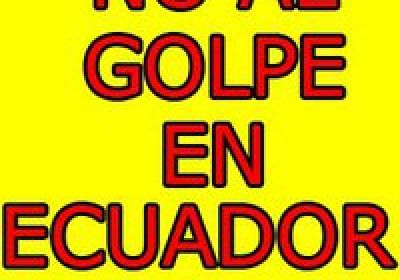
A coup attempt is underway against the government of President Rafael Correa. On Thursday morning, groups of police forces rebelled and took over key strategic sites in Quito, Ecuador’s capital.
-
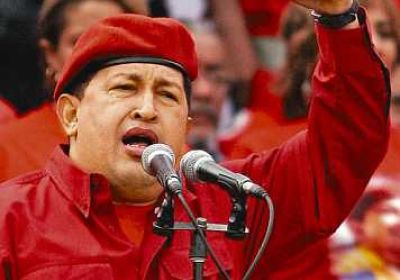 Mérida, September 30th 2010 (Venezuelanalysis.com) – As a coup attempt takes place in Ecuador, Venezuela and regional organisations of Latin America have come out in solidarity with Ecuador, and Venezuelan President Hugo Chavez called on the people and military of Ecuador to defend President Rafael Correa and their country’s democracy. Ecuador is a close ally of Venezuela, and a fellow member of the progressive Bolivarian Alliance of the People of Our America (ALBA).
Mérida, September 30th 2010 (Venezuelanalysis.com) – As a coup attempt takes place in Ecuador, Venezuela and regional organisations of Latin America have come out in solidarity with Ecuador, and Venezuelan President Hugo Chavez called on the people and military of Ecuador to defend President Rafael Correa and their country’s democracy. Ecuador is a close ally of Venezuela, and a fellow member of the progressive Bolivarian Alliance of the People of Our America (ALBA).